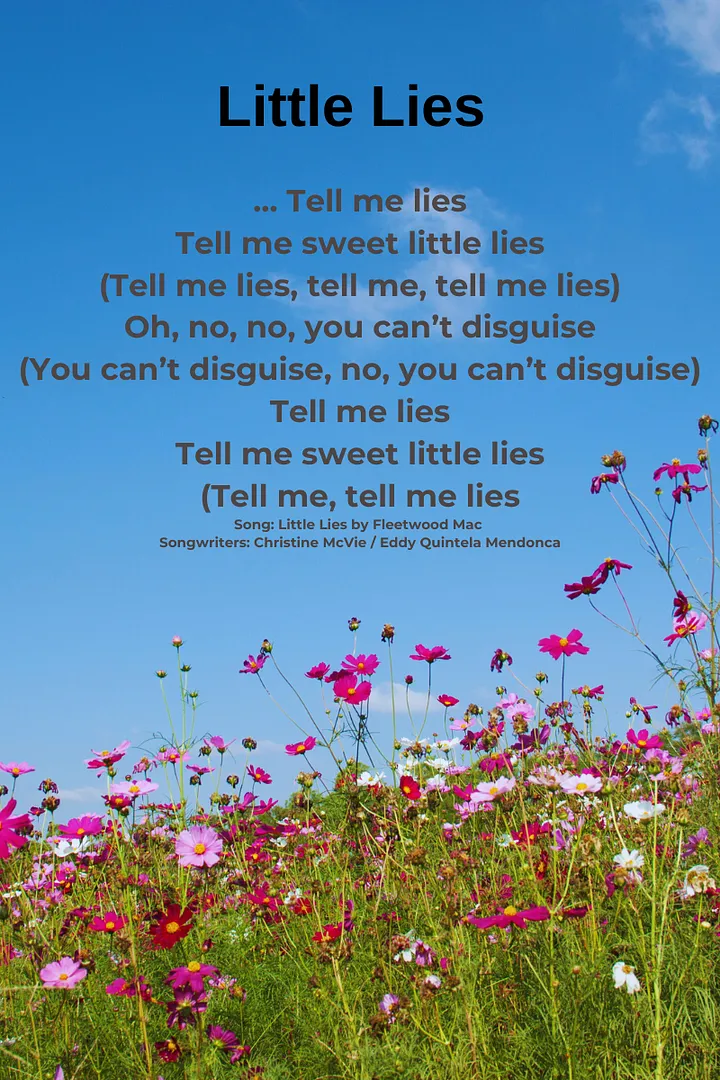When One Spouse Wants Out, You May Need Managed Separation.

A marriage crisis has to be one of the most frightening experiences a couple can have. It begins when the partner, whom I call The Decider, tells their spouse, whom I call the Leaning-in partner, that they think they want a divorce or need time away.
In a few moments, everything forever changes for the couple. The Decider’s autonomic nervous system is firing, and they are in flight mode, feeling an urgent need to get away from the Leaning-in Partner. Once the news is revealed, the Leaning-in Partner’s nervous system becomes activated, too, and they go into fight mode. The Decider’s brain tells them there is a survival threat and to run for their life, and the Leaning-in partner’s brain says there is a survival threat and to fight for the marriage. Unfortunately, the need to get away from one spouse and the instinct to chase after the leaving spouse have opposing purposes, and that’s where I come in.
At this point, things could quickly go south and get worse. The first step is to call a marriage crisis manager like me. We can coach each of you so that the situation can be stabilized, mistakes can be avoided, and intelligent decisions can be made. What we ask of you will be counterintuitive and difficult, but doing these things will give you the best chance at reconciliation or an amicable parting.
How I became interested in marriage crisis management.
I started helping couples manage marriage crises over 20 years ago. I started doing it because there was a huge need for it. For eons, marriage therapy theories centered around helping heal broken marriages, teaching communication skills, and changing patterns of behaviors that don’t work, but when it came to one person so fed up that they were seriously thinking of leaving, the average marriage therapist had no idea what to do or how to help. I learned that the hard way in 1992 when I was The Decider, and our marriage therapist sent us away, saying, “If you get motivated to work on your marriage, Becky, call me back.” Really? My gut told me there had to be something else, but the Internet was not readily available then, and I had no way to figure it out. We were left to separate and manage our crisis ourselves, made a huge mess of everything (of course), and ended up divorced when I know now there were things we should have tried before giving up. Our children certainly deserved better.
Since I knew there was a need for this type of expertise, and I was endlessly fascinated with the subject, I decided to prepare myself to do this work. In 2001, I was a single mom, left my journalism career, and entered graduate school to become a marriage and family therapist. Never considering myself the scholarly type, I intended to get my master’s degree and leave it at that, but my best friends in my cohort begged me to keep going along with them, and three years later, I got my doctorate — thanks, guys.
During five years of graduate school, whenever I had a choice of subject for a research paper or presentation, I focused on marriage crisis, separation, the decision to divorce, and the effects of divorce on family members. I also spent one solid year studying the subject for my dissertation in 2005. What I learned that year blew my mind, and I felt an urgent need to get this information into the mainstream, knowing it would help people make wiser decisions about their marriages.
I wanted to write a book for a mainstream audience and sent out book proposals to agents nationwide, attended writer’s conferences, met book agents in person, and not one person was interested in representing a nonfiction book on marriage crisis. “Too negative,” was the most frequent response.” “Maybe, but only if there is a happy ending where the troubled marriage can be saved,” said some. And, my favorite, “Great topic, you are qualified, but your social media following isn’t strong enough and you’re not famous.”
About the topic being negative, I thought, “Some stories don’t have Disney movie endings, some marriages will not be saved, some might can be saved that otherwise would have ended with this information, and the reality of the situation is marriage crisis is a very tough and unpleasant subject indeed, but does that mean people should not have access to the good information available to them when the shit hits the fan in their marriage? With the right information and some luck, couples that would have divorced might be able to resolve their marriage issues and reconcile in a way where the post-crisis era is better and healthier than any other stage of their marriage.
Marriage problems and crisis: the subject no one wants to talk about.
Like cancer, no one wants to read about marriage crises unless they’re being directly affected by it. I try telling my friends about my soon-to-be book being published at long last, and their eyes glaze over. I understand; it doesn’t interest you if you’re not in a marriage crisis yourself. But when it happens to you, you will obsessively search for any information you can find, and there isn’t much. My book will correct that wrong, and in the meantime, I write this blog about it and have a website completely dedicated to the subject. I hope my book will clear the way for more like it that will help people when they look for the best solution for their marriage crisis. There has to be.
In 2022, there were 673,989 divorces across 45 U.S. states (1). Unfortunately, not every state reports these numbers yearly, and I am betting that every single one of those marriages that ended experienced a marriage crisis. This leaves out the marriage crisis experienced in the other five states and the situations where couples did not legally divorce, so there is a strong need for information on what to do when one spouse comes in the room and says they are unhappy and are considering divorce.
Divorcing couples and those thinking about it is a huge audience, and why book publishers, television shows, and magazines believe the reality of the marriage crisis is too negative to focus on, even though the information could save numerous families from breaking up, is something that doesn’t make sense or sit well with me. Maybe my book, which covers the subject completely and will be published by HCI Books, will open their eyes. The blog I wrote, an excerpt from that book, has had tens of thousands of readers and more every day. If that doesn’t speak to the need for solid information on what to do in a marriage crisis, nothing does.
Preventing a marriage crisis.
In the months and years before a marriage crisis, both partners are usually keenly aware that they have marital problems, but one person in the marriage either thinks the issues aren’t that serious or that their partner will never leave. This miscalculation, or perhaps denial, prevents the person who will later become the Leaning-in partner from doing any hard work on themselves or directly dealing with marital conflicts in a significant way when there was still a chance the unhappy marriage could have been turned around.
If I could tell anyone in a struggling marriage one thing, it would be do not ignore pleas for change from your spouse. Take their concerns seriously, and address what you can. If you think the requests aren’t reasonable, go to marriage counseling and ask them for an opinion. I hear unreasonable requests sometimes, and I have to tell the person who wants more than what is reasonable that they’re out of line. But if the requests are reasonable, be responsive. The lack of responsiveness for course corrections in marriage will always trip you up in the end, trust me. Why? If you aren’t responsive, your partner will experience a loss of hope, which leads a couple down the path to a marriage crisis; once you hit that point, the odds drastically lower that your marriage can be rescued.
I don’t know what you or anyone else thinks of marriage therapy or reasons people choose not to go, but I’ve talked to enough people to know that a lot of people think it is for couples who are in a really, really bad place with deep-seated real issues that are serious and marriage threatening. Not so.
Marriage therapists can keep you from getting to that place if you come in soon enough before damage and resentments have piled high. Human beings are not born with relationship skills, unfortunately, and there are few places to learn them, that’s why I think every married couple should consider it relationship school. Perhaps it would be more universally acceptable if we called it relationship university rather than marriage therapy. If people did get professional help, there would be fewer marriage crises and divorces, and our close friends and family members and the world would thank us.
Honestly, maybe you weren’t cut out for marriage.
Some people aren’t cut out for marriage but don’t know it. My dad was one of those people. In his head, he wanted marriage and ten children. When it came down to application, he married a woman he wasn’t crazy about because he got her pregnant — hey, in 1940, he thought it was the right thing to make an honest woman out of her.
They had five children over 17 years, not ten, and the last couple of kids he wished had never been born; they were unintended. He hated the noise and shenanigans of children; he wasn’t playful and didn’t relate to them on any level, and they could tell. As a child, I saw him as stiff and serious, like a funeral director.
How many times he cheated on my mother is a number too high to imagine or know. I know of at least ten just in my lifetime, and I was the baby. The stories of angry husbands calling my mother to say dad was fooling around with his wife were numerous. I always wonder how my life would have been different if I’d had two parents who loved and respected one another and role-modeled a healthy relationship, a warm, fun, adoring, and affectionate dad, and a confident, nurturing mom.
People like my dad are so self-oriented, entitled, and focused on their own needs that they weren’t designed for a give-and-take relationship. They find it a burden to sacrifice for others. That’s fine; acknowledge your need for freedom and independence, and don’t inflict yourself on others and make their lives miserable with your inability to be relational. Some of these things can be repaired in trauma therapy if you put in the effort, and the truth is, I wish every person would go to trauma therapy to get insight into the areas where they may have emotional disabilities — I think everyone would be surprised at what they’d learn.
I always tell my clients that you marry someone as is, so make sure the person you select is healthy, kind, relational, and has integrity before you say the vows. I’d love to see adults prepare themselves mentally, emotionally, and spiritually to be healthy in relationships before they go seeking them.
Other people who might want to do some work before putting their dating shingle out are those who are needy, anxious, or avoidant-attached, moody, or controlling, have unrealistic expectations, have no interest in meeting their spouse’s needs, are masters of the blame game, and feel entitled to do what they want when they want. All these are signs of emotional immaturity; as I always say, marriage is for grown-ups.
Sometimes, time apart done the right way can save marriages: The Managed Separation Agreement.
When a couple in crisis calls and I visit with them, I often see one person experiencing a crescendo of stress and needing to get away from their partner while the other has fallen into an obsessive need to win them back.
I experienced this myself long ago with my children’s dad, and it’s a common problem in marriage crises. When this happens, a person’s sympathetic nervous system is firing, and their brain sends the message that there is a survival threat. When I hit the peak of stress, I felt my husband’s energy in the house, and when I felt it, it overwhelmed me to the point where I felt I might die. Seriously. When a person feels like that, they can’t make sense of anything, and the best thing for all involved, even if you have young children, is to take a break, not make any major decisions, but spend some time apart so the Decider can come out of their stressful state where rational conversations can take place.
Because so many couples who separate on their own make so many errors in the process, I created a plan for doing it that has a purpose and a timeline.* It ensures that couples don’t end up in separation limbo and do the necessary things to lead them to the right decision about their marriage. The managed separation agreement I created has rules to follow, a timeline, and requirements for each person to be in individual therapy throughout and touching base with a marriage crisis manager, usually a marriage therapist familiar with the process, who ensures that everything is proceeding forward. This is the only way I know to deal with a marriage crisis intelligently and in a way where mistakes and regrets are avoided.
The marriage therapy profession always needed something like this to help couples on the brink when the Decider didn’t actually want to work on the marriage at that moment and wasn’t sure they wanted to divorce. This fills the gap and serves to escort them through it. If you know anyone in a marriage crisis, let them know it’s available.
- If a couple decides to part permanently, I have also created a plan for an amicable divorce. It’s available here.
.(1) CDC/NCHS National Vital Statistics System.
Have a question? If you have a subject you’d like to see me write about or a situation you might want to present that I could discuss in a blog, please email me at [email protected].
We’ve got lots of news and exciting things going on in the relationship realm … so I’m preparing to send a regular newsletter with the best relationship advice on the planet. To get on my email list, click here.
Becky Whetstone, Ph.D., is a licensed Marriage and Family Therapist in Arkansas and Texas* and is known as America’s Marriage Crisis Manager®. She is a former features writer and columnist for the San Antonio Express-News and has worked with thousands of couples to save their marriages. She can work with you, too, as a life coach if you’re not in Texas or Arkansas. She is also co-host of the YouTube Call Your Mother Relationship Show and has a telehealth private practice as a therapist and life coach via Zoom. To contact her, check out www.DoctorBecky.com and www.MarriageCrisisManager.com. Also, here is how to find her work on the Huffington Post. Don’t forget to follow her on Medium so you don’t miss a thing!
For licensure verification, find Becky Whetstone Cheairs.






